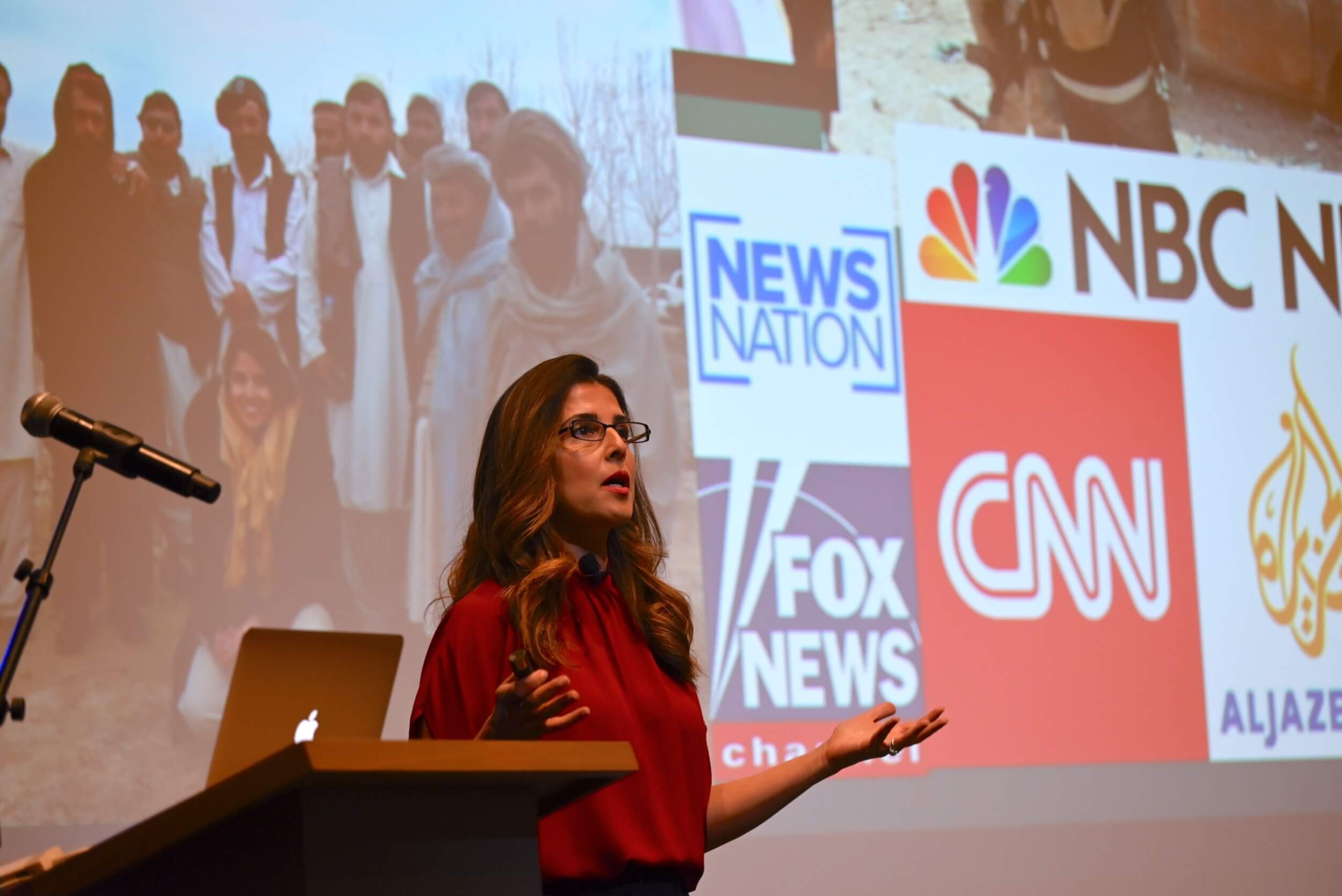Noted American journalist, author, and analyst Atia Abawi spoke to families, faculty, staff, and students on April 8, 2025, as part of Colorado Academy’s SPEAK Lecture Series, held in the Leach Center for the Performing Arts. Detailing her decades-long career as a global correspondent for CNN and NBC—networks for which she reported on the U.S. raid that killed militant leader Osama bin Laden and America’s military withdrawal from Afghanistan—as well as a writer and expert on the Middle East, Abawi told her audience, “In a world that is increasingly politicized and polarized, finding what’s true has become more difficult than ever.”
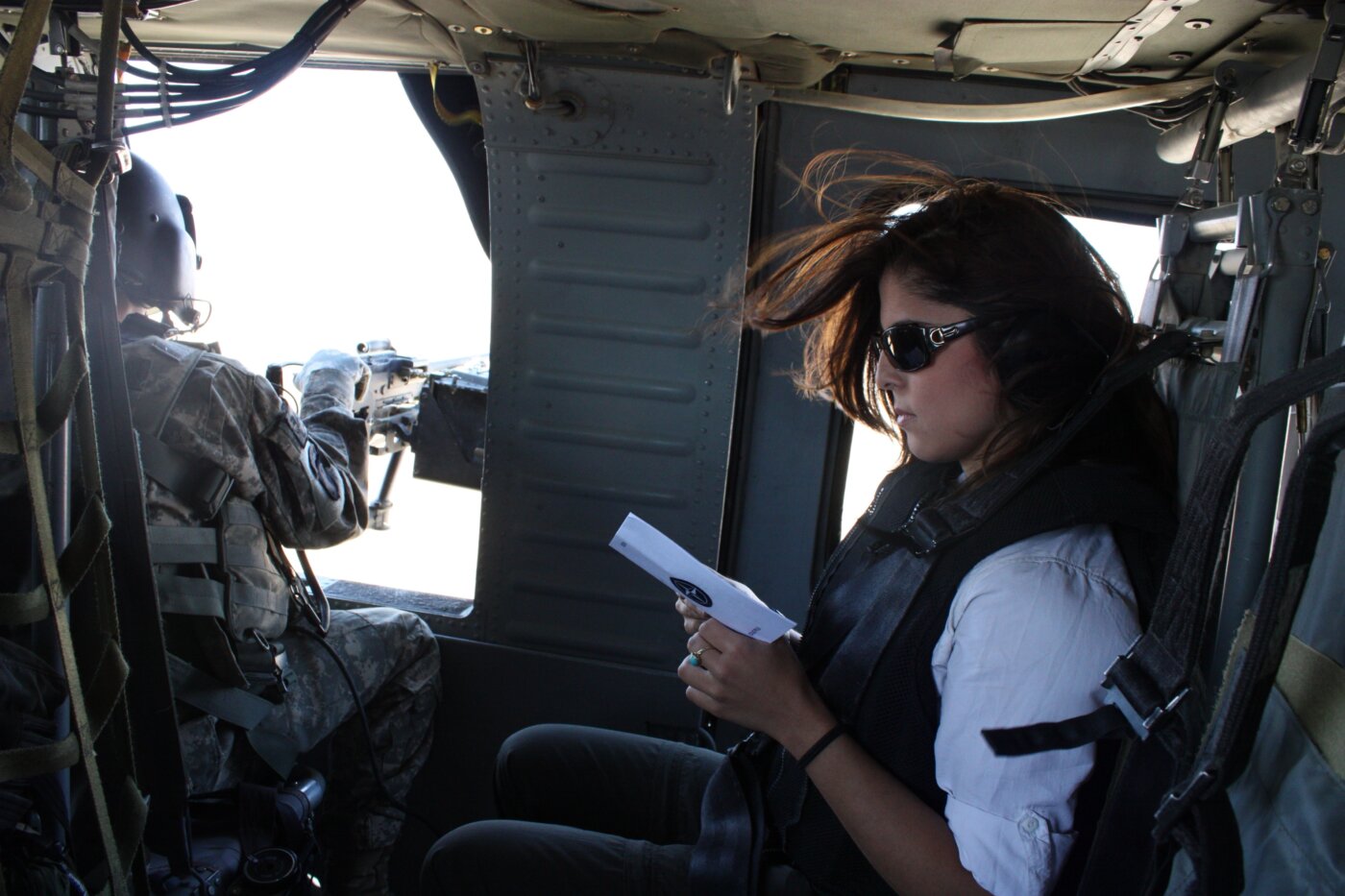
Born in Germany to Afghan refugee parents who had fled after the Soviet invasion of Afghanistan, which lasted from 1979 to 1989, Abawi is now a dual citizen of the United States and Afghanistan; in addition to English, she is fluent in Dari and Farsi and also speaks Arabic and Hebrew. She has reported from war zones for most of her career, first working for CNN in Pakistan and Iraq, and then establishing CNN’s Kabul bureau during major U.S. military operations in Afghanistan. She later managed NBC’s operations there, before moving to Jerusalem to continue her Middle East coverage for the network. Since then, she has published two books of “realistic fiction” based on her time in the region.
Pointing out that her work has appeared in numerous outlets around the world, including Al Jazeera English and Fox News in addition to NBC and CNN, Abawi continued, “All journalists and news organizations present some of the truth, but they inevitably omit other facts that might not support their narrative.” The average televised segment she produced was about a minute long, she noted—hardly time for a reporter to present a complete story. “So unfortunately, it’s now up to us as news consumers to do a lot of the work ourselves if we want to know what’s really going on in the world.”
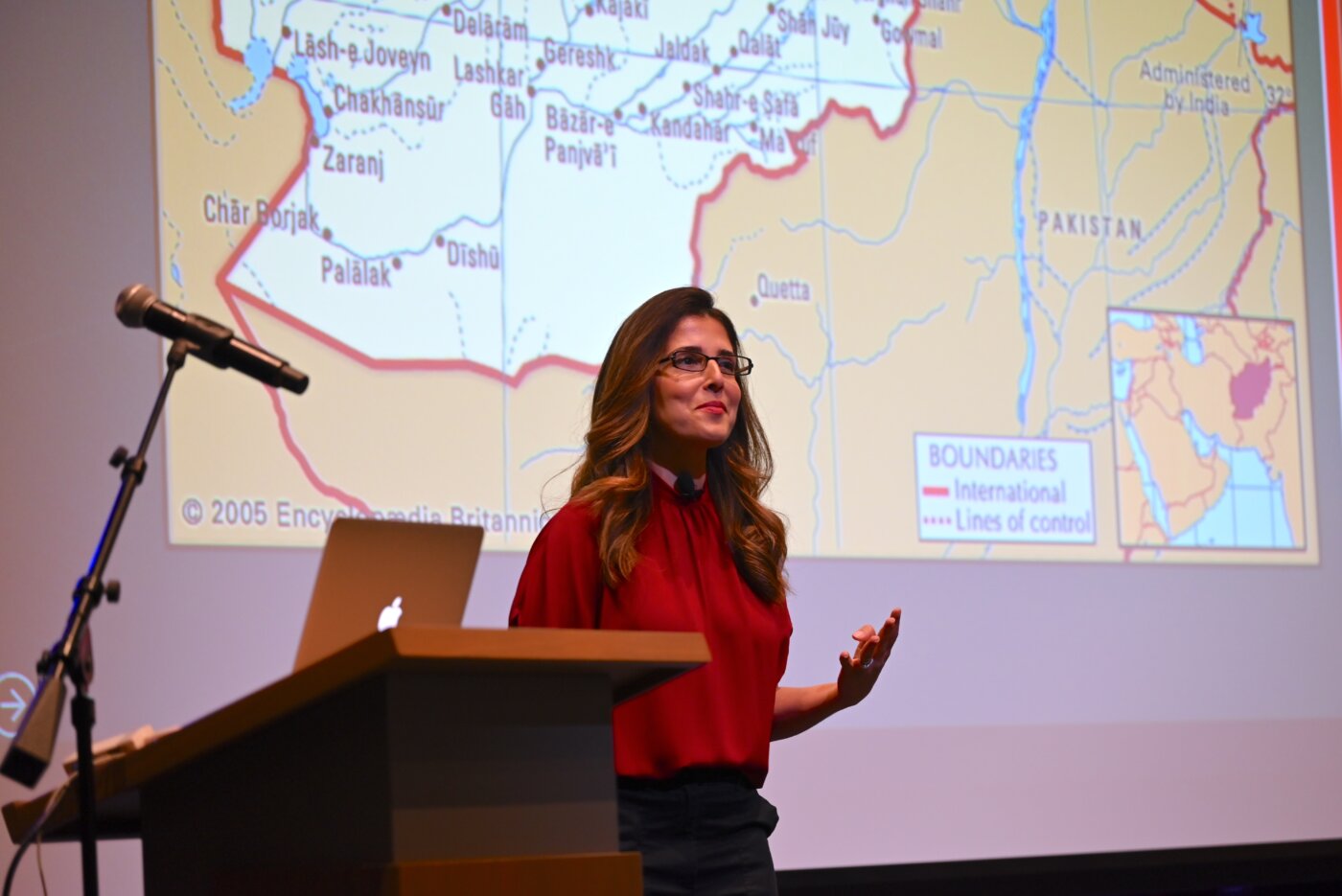
Key to that task, said Abawi, is the practice of empathy, a critical skill that’s come under increasing attack, especially on social media, where extreme views on all sides seem to fracture every discussion of today’s most important political and social issues.
“In Afghanistan, my parents never thought Islamic extremism would transform their home almost overnight,” she recounted. “Islam had been peacefully practiced there for more than 1,000 years; the country they grew up in saw families of different religions and cultures existing in harmony.” But fundamentalism’s “blueprint,” she explained, turned the concepts of Islam into weapons of fear and hatred.
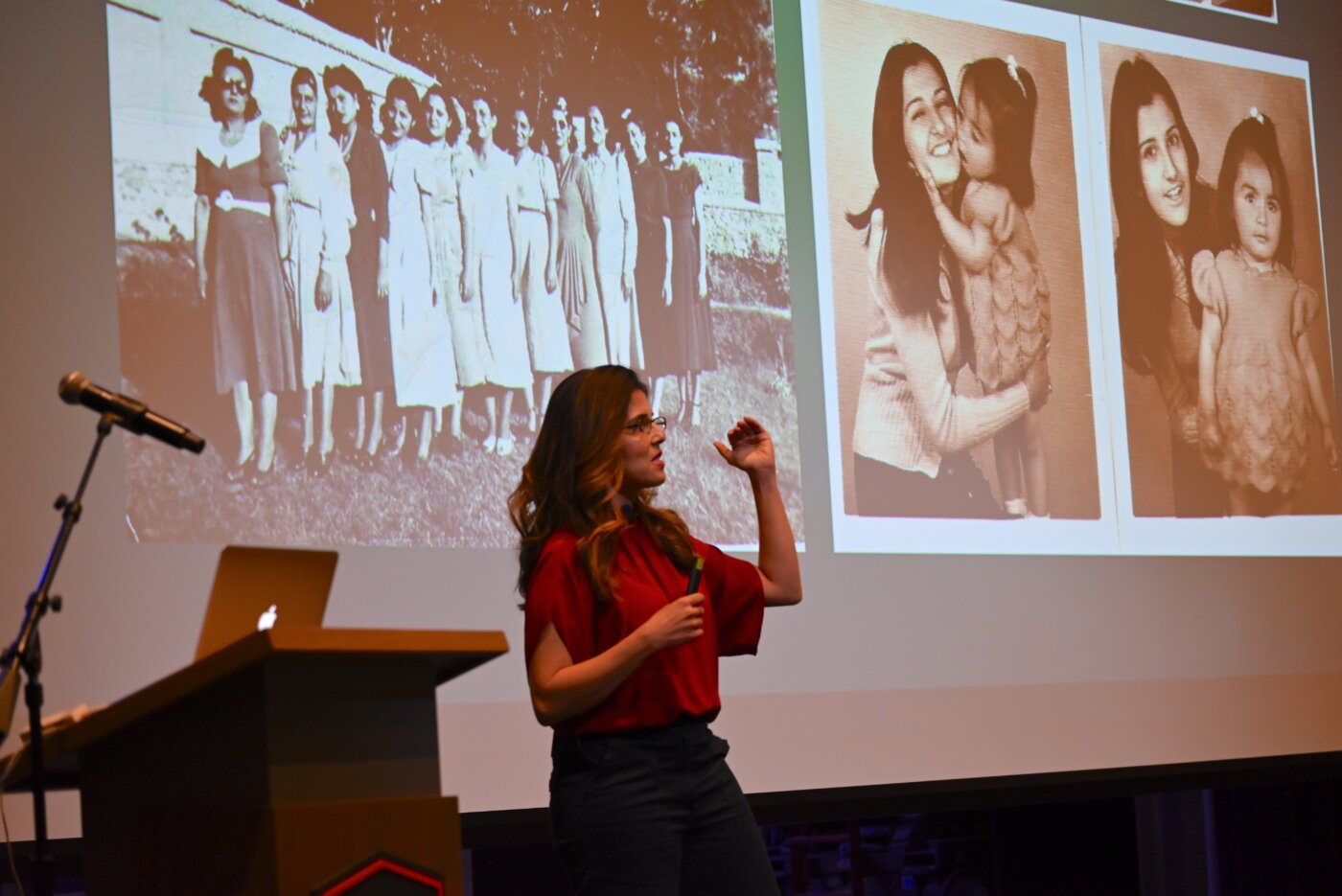
“We are not immune,” Abawi warned. “We’re seeing that same blueprint play out today in our social media feeds, within our government, and across our society. Together, we’re all falling into these tunnels of perception that vilify people in other nations or in our own cities. It is up to us to ensure we don’t stumble into the same trap that my parents fled.”
With more than 122 million displaced people and refugees around the world, including 47 million children, the weaponization of cultural, religious, and political division shows no signs of abating, she observed. “We will continue to be confronted with people who have suffered, who have lost everything, whether they be from abroad or from inside our own borders, whether they leave because of war, persecution, or natural disaster.”
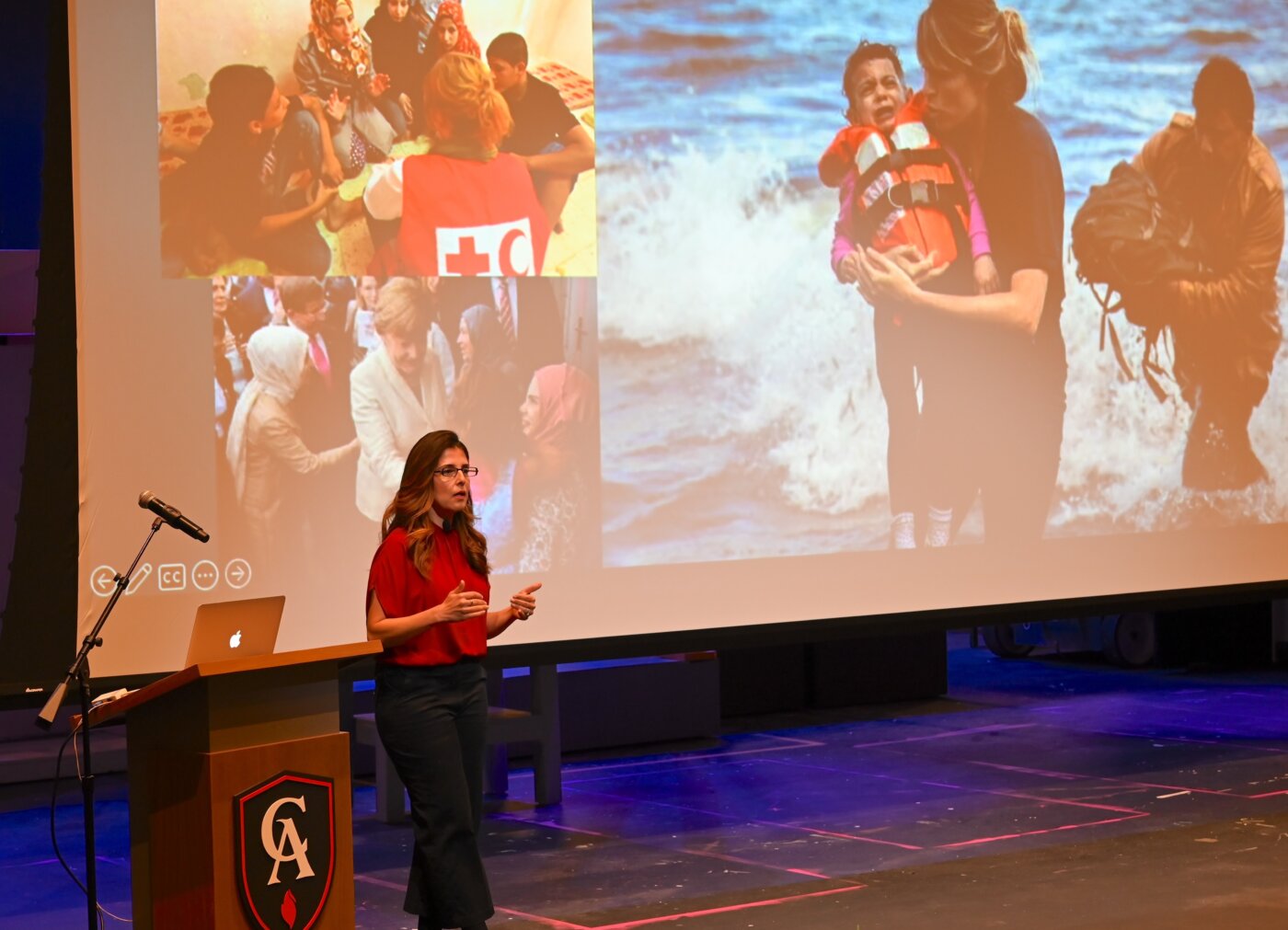
Humanity’s greatest enemy in these times is fear, said Abawi. Deeply embedded in human nature as a protective mechanism, fear today has been pushed far beyond its role in keeping us safe. “When it comes to people who may look different or speak a different language or practice a different religion, fear now is used to inspire hatred and division.”
But, she continued, “I believe in empathy, in approaching those who are suffering with kindness. We are a nation of immigrants and refugees—we were once those people we’re afraid of today.” It is our duty, she said, to do our own research, to listen to people’s individual stories, to connect with others from different countries and backgrounds. “Fear can be transformed into empathy and understanding, and those who practice empathy are stronger than anyone.”
The power of a flag
Abawi highlighted the recent cuts to the foreign assistance programs of the United States Agency for International Development (USAID) as an example of fear gone rogue.
Established in 1961 by President John F. Kennedy, USAID has implemented programs in global health, disaster relief, socioeconomic development, environmental protection, democratic governance, and education. It has missions in over 100 countries, primarily in Africa, Asia, Latin America, the Middle East, and Eastern Europe, and with average annual grants of about $23 billion since 2001, USAID has been one of the world’s largest aid agencies.
Upon its founding, Abawi noted, Kennedy stated that foreign aid directly impacts our national security. In his words, “It is a very powerful source of strength for us. It permits us to exert influence for the maintenance of freedom. If we were not so heavily involved, our voice would not speak with such vigor.”
Still, the agency has faced scrutiny over its role in political influence operations, conflicts of interest, corruption, and wasteful spending—all criticisms that Abawi acknowledged. As a result, the current administration is attempting to shut it down, pending court cases and approval by Congress. But what is needed, she said, is “a scalpel, not a sledgehammer.”
According to Abawi, “As someone who has traveled in a lot of countries and has seen a lot of desperate people, I have witnessed the immense amount of good work that USAID has done. Handing out food to starving families who see the American flag on those supplies—that’s protected our national security in ways that I don’t think we can even imagine. There are millions of people who will never know America, but they will know that it’s America that fed their child. It saddens me that that might go away.”
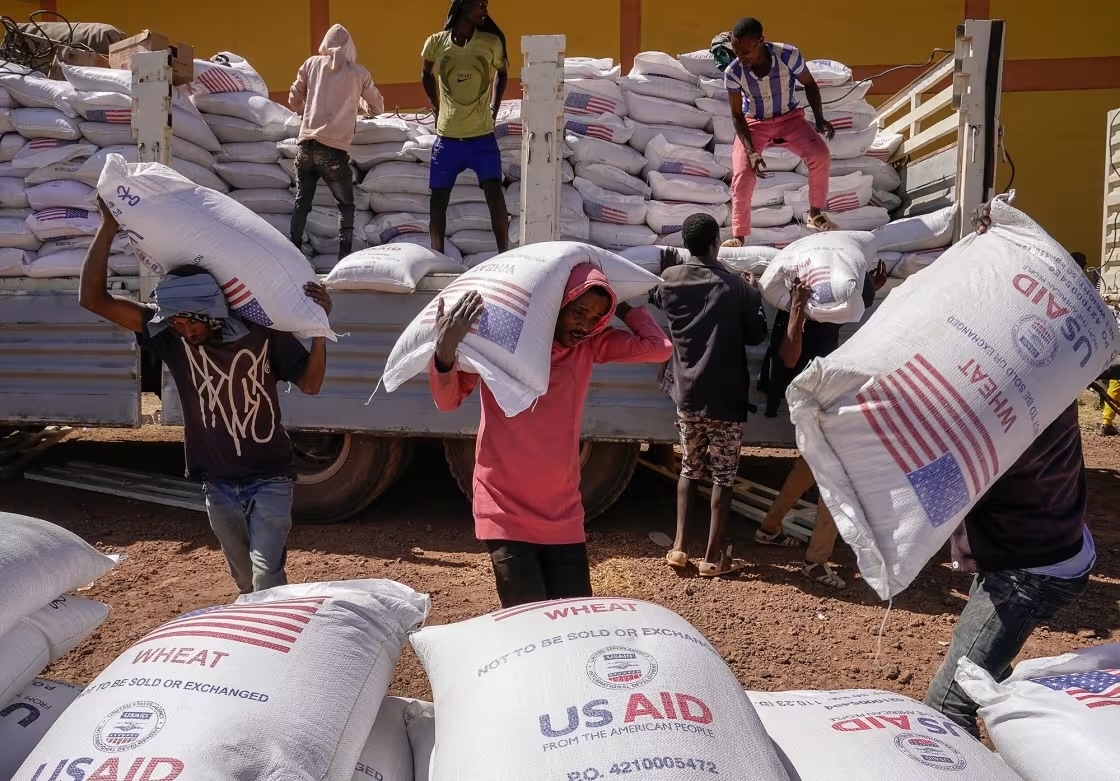
To withdraw lifesaving aid that has helped millions of people, she argued, inevitably leaves a vacuum that will be filled by extremist groups like the ones she has long been familiar with from her work in Afghanistan and elsewhere. Children who once would have seen America’s influence through food aid now will see it only in the weapons and munitions that fuel conflicts in their towns and villages—the same children who one day will be convinced by militants to take up arms as fighters or suicide bombers, Abawi stated.
The argument applies equally in the case of the government’s crackdown on immigration and its move toward imprisonment and deportation of immigrants and refugees as policies of choice. Right here in Denver, she noted, a strong Afghan refugee community is the direct result of decades worth of federal and state support for the assimilation of people fleeing war and persecution.
“We’re being taught to be afraid of all these people looking to us for help,” Abawi said. “But in reality, it’s easy to get in touch with families in these communities and try to understand—they’ll gladly invite you over for a cup of tea.”
Growing empathy
As Abawi told her audience, despite all the evidence to the contrary, “I do think there is always hope.”
There are so many people who want the best for everyone, she said: “It’s just that we don’t hear those voices. Like in the other countries I’ve worked in, it’s the divisive voices that are the loudest.”
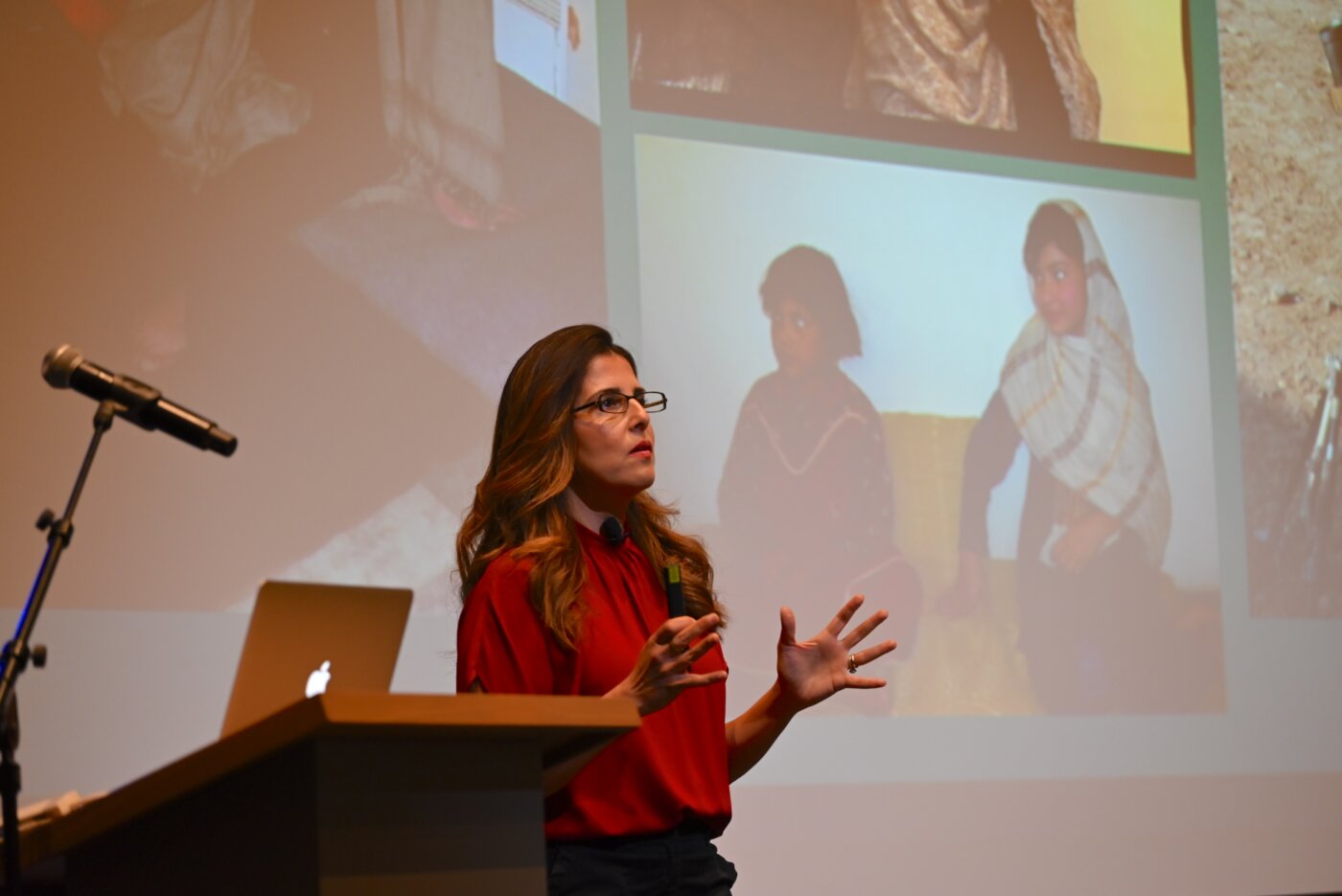
The worst mistake we can make is assuming someone else will speak up, that the systems and structures that have sustained the United States to this point will continue to do so. “Afghanistan had systems in place; so did Ukraine,” Abawi observed. “No one thought things could fall apart as quickly as they did.”
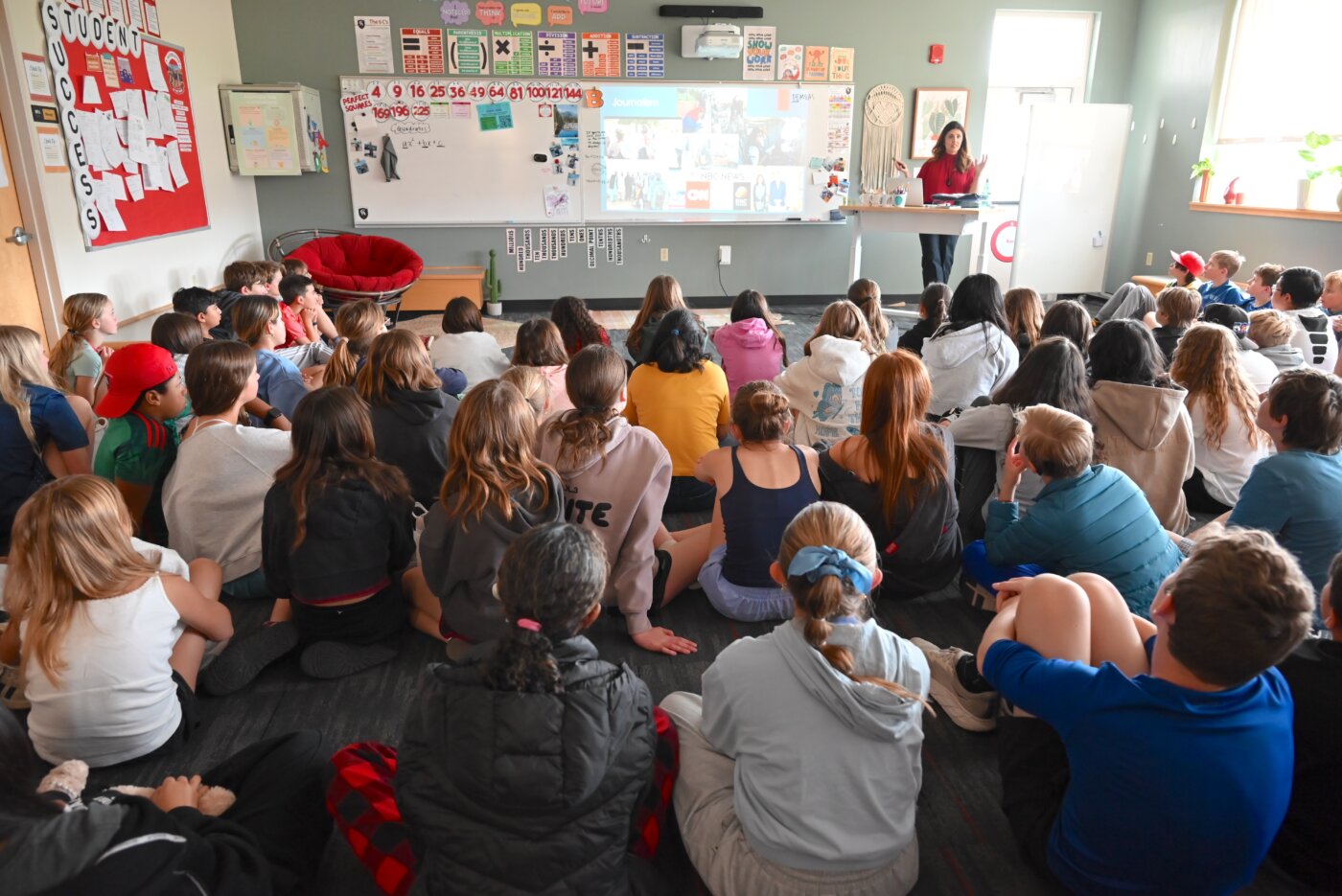
That means it is up to all of us—especially young people—to be a voice for those who can’t be. “There are people who can no longer speak up,” noted Abawi. “If they do, they will be targeted; their families will be targeted. So we must be their allies.”
Words such as “ally,” “diversity,” and “empathy” may be under attack, she said, but they are vital today.
“We know that students at a school like Colorado Academy are going to make an impact out in the world—more than many others. And they will be the ones who hear voices of hatred and division all around them, voices that say that empathy is a weakness, and then remember discussions like this one with their teachers and families. They will remember the voices that told them otherwise: that the stories of other people matter.”
Whatever may come, Abawi reminded her audience, we have done our best to plant the seed of empathy. It is up to the next generation whether they will let the seed flower and grow.
